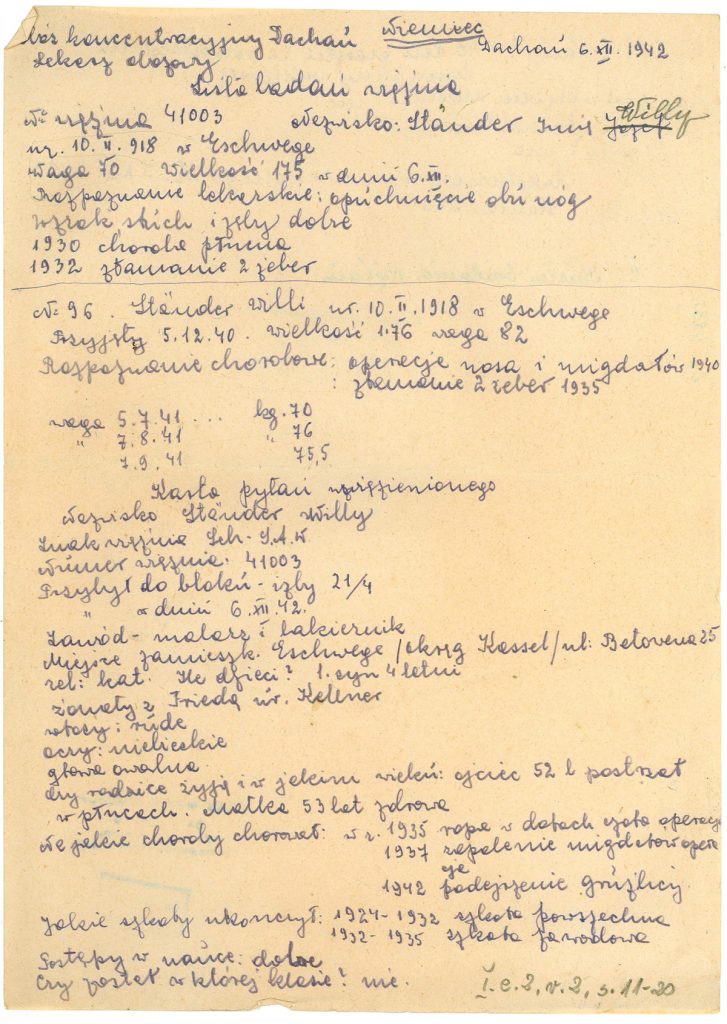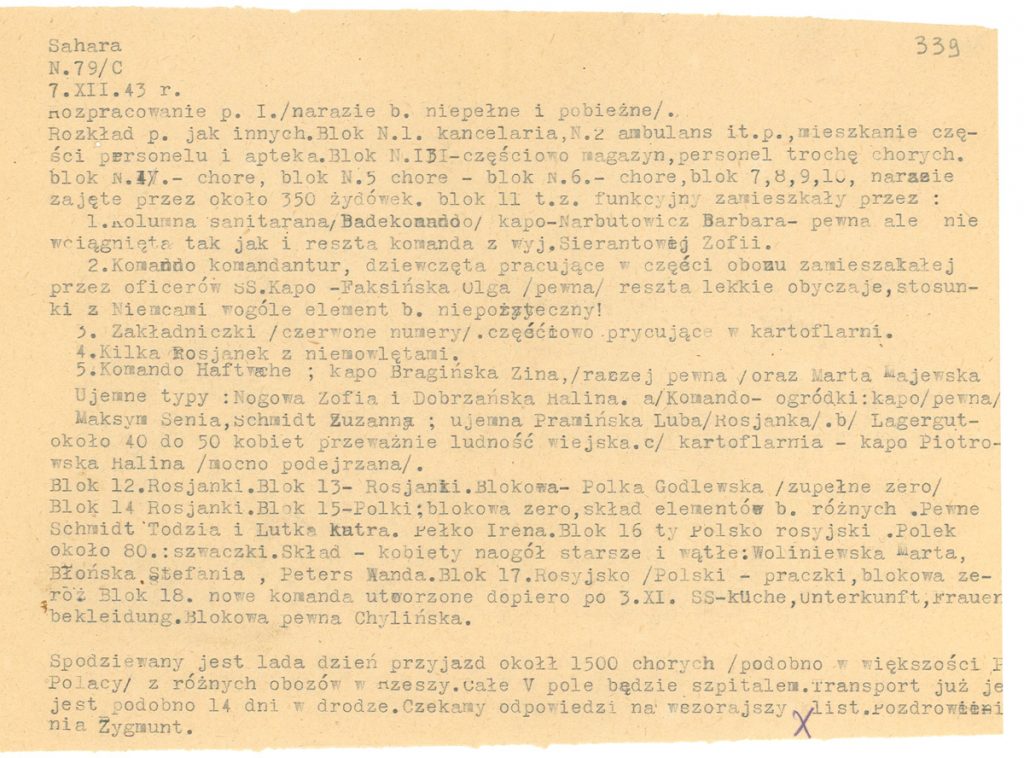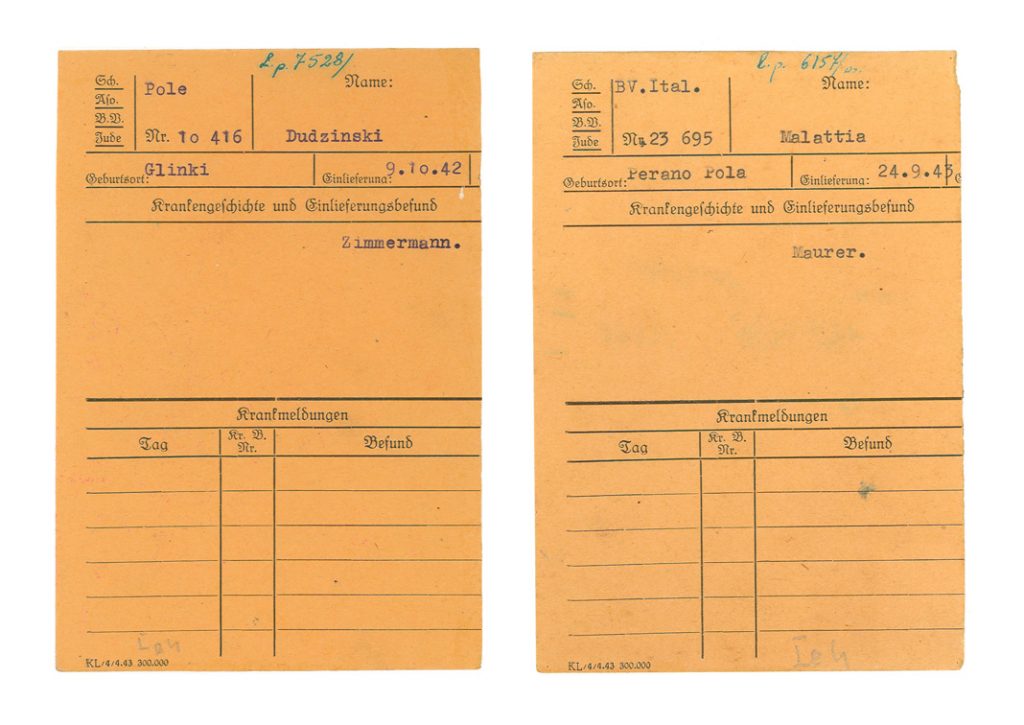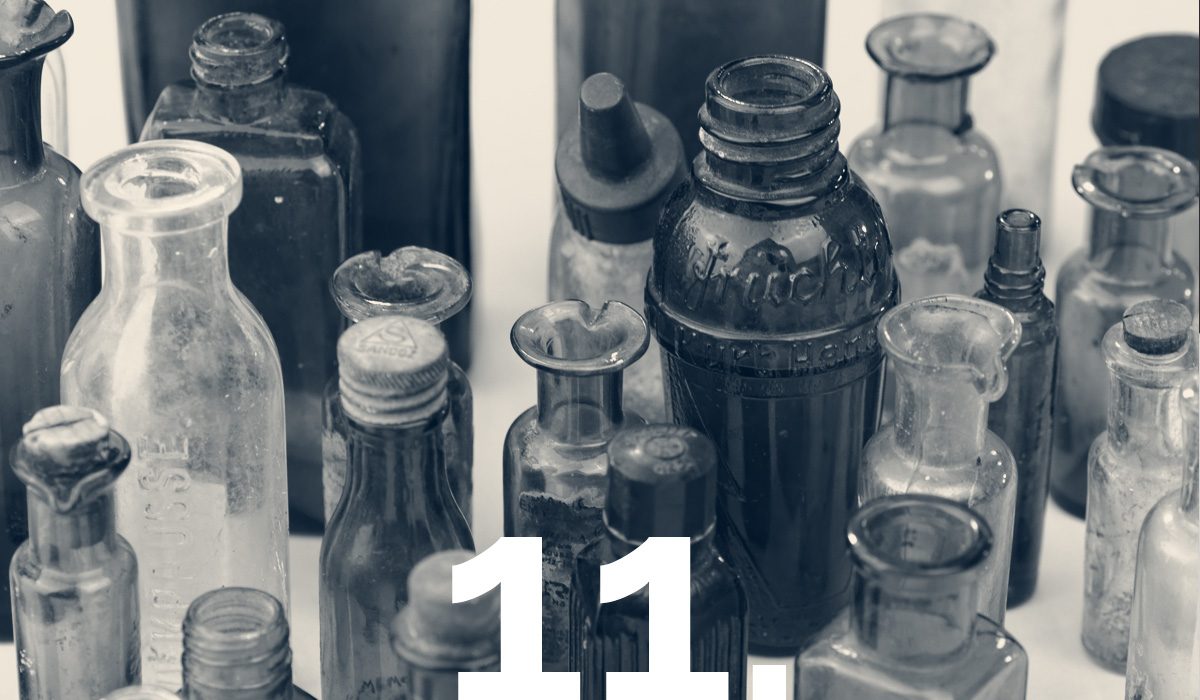Between mid December 1943 and mid March 1944, Majdanek received so-called transports of infirm and crippled prisoners arriving here on the order from the Reich Main Security Office. These were composed of extremely emaciated and terminally ill patients. Many did not survive the winter journey on a cargo train. Men and women were brought in from the camps in Sachsenhausen, Auschwitz, Buchenwald, Flossenbürg, Neuengamme, Mauthausen, and Ravensbrück.
Apart from the exhausted, they carried people suffering from malaria, tuberculosis, the blind, and prisoners with broken arms and legs. The victims included Polish, French, Russian, German, Dutch, Italian, Norwegian, Danish, and Belgian nationals. It is estimated that said transports carried approximately 7,000 people in total. The infirmaries already operating at the camp were unable to deal with such numbers of new patients. The mortality rate in this group was very high.

Willy Ständer’s medical record. He was deported to Majdanek from KL Dachau in January 1944, PMM
We don’t work here, after all we’re all here “to die”. And it won’t take long. Even now the barrack latrines are filled to the brim with bodies of those that died during the night. There even aren’t any roll-calls, what would be the point anyway, we’ll all be dead within a month. (…) And so we’ve been here three weeks now. Suddenly they come to move us somewhere. We are transferred to the adjacent field, the so-called hospital. It is just as horrible as the previous one, only closer to the crematorium. As soon as we arrive we can see the fleas on the floor. The blankets they give us are heavily infested with them, full of lice as well. This time, my bunk neighbor is some honorary captain of the General Staff. He doesn’t stay there long, he’s got dysentery. At night, I have to hurry to bring him the bedpan because he’s too weak to move anymore. He also dies suddenly on March 21, 1944, while trying to tell me something… I’ll never find out what it was. I feel like a pawn in some sort of a game. And all the pawns around me are taken one by one.
— André Rogerie
They brought in 780 very sick women and we had to save them. It was hard to examine them because only 240 of them were Polish, the rest were from other countries and usually spoke no language other than their own. We needed to look for translators and we counted 18 nationalities in total in that transport. There were women from Holland, Denmark, France, Belgium, Yugoslavia, Norway, Russia and other countries – a true Tower of Babel.
— Stefania Perzanowska, MD

Report sent by “Zygmunt” (H.Wieliczański) to “Elżbieta” (W. Szupenko) and relating to the infirmary after November 3, 1943, PMM

A fragment of the medical record register, PMM
